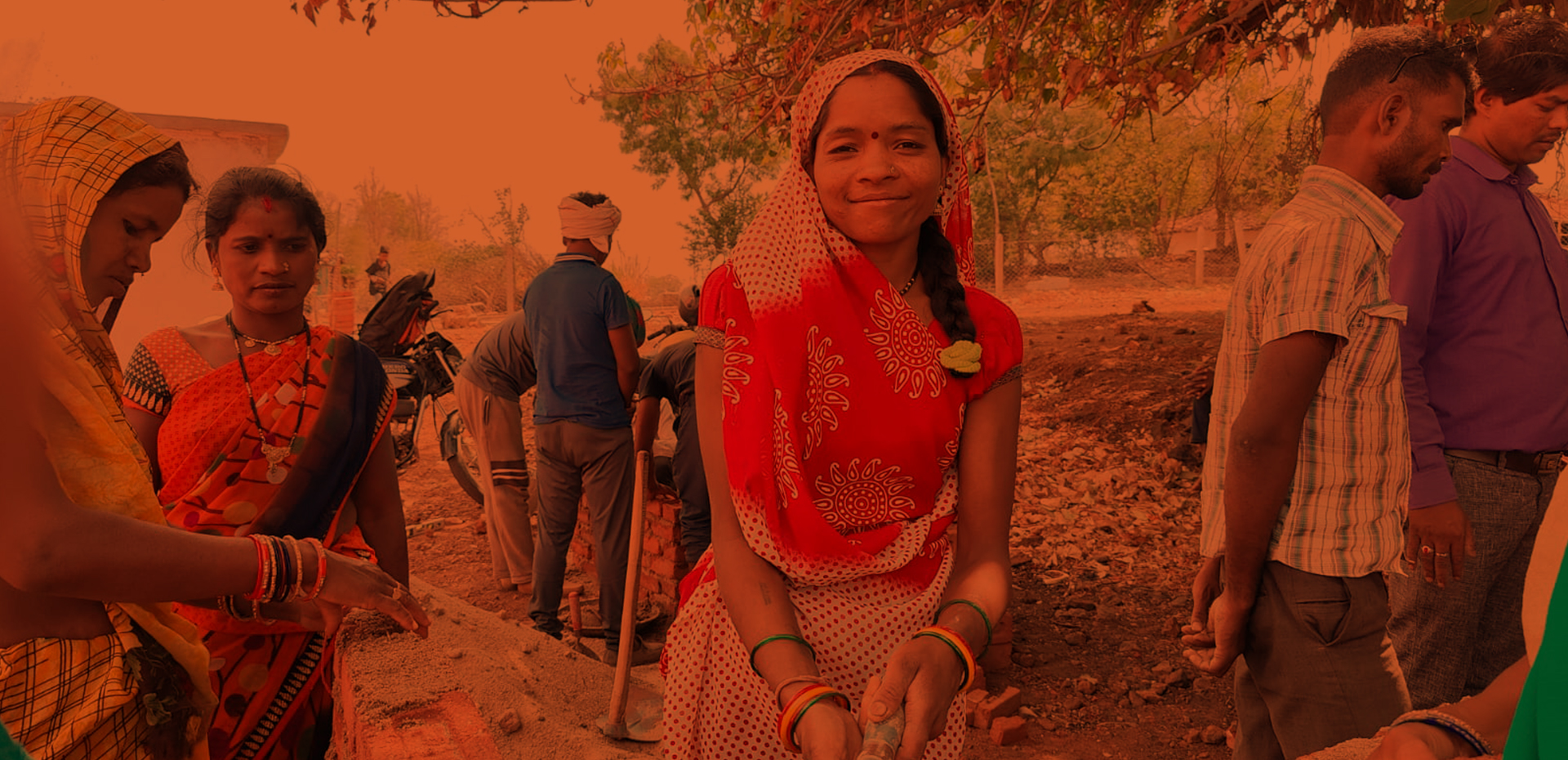
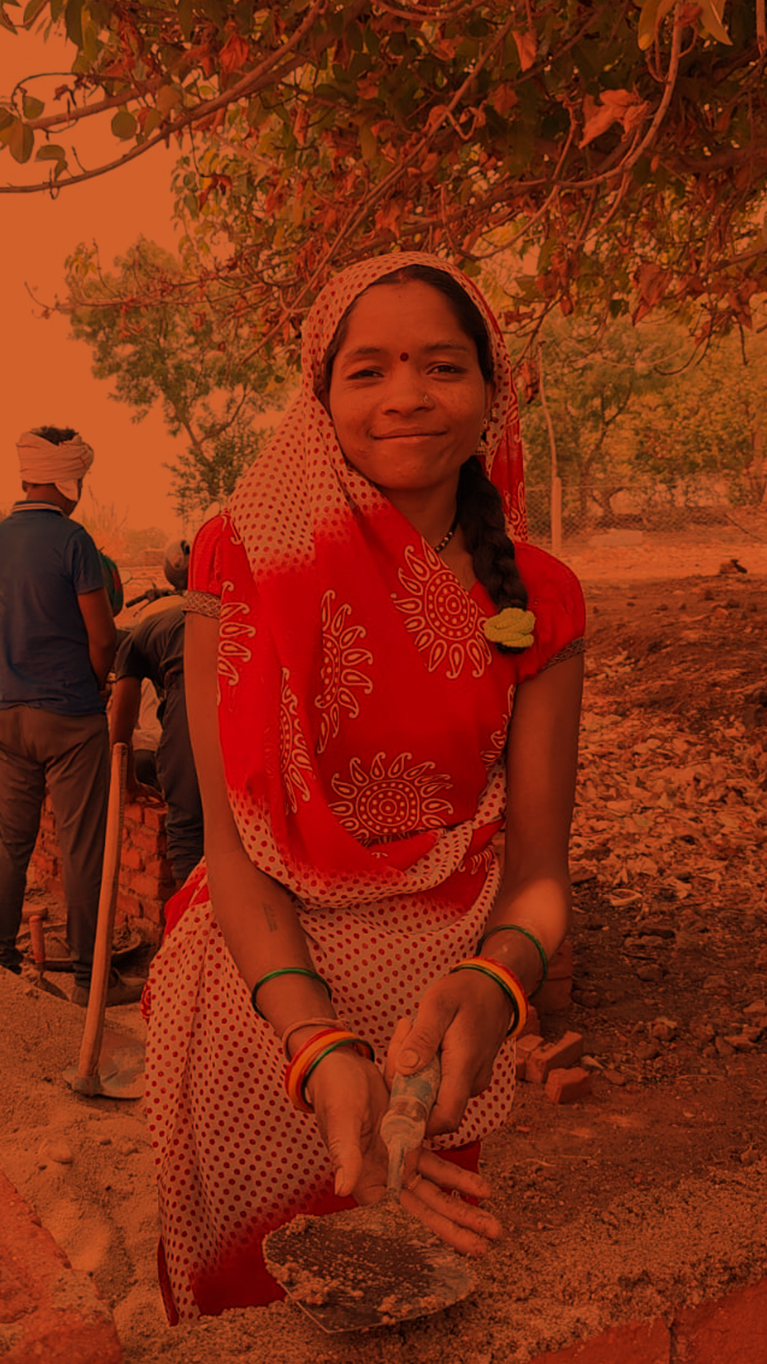


The Anakapalle district of Andhra Pradesh faces pressing challenges in water resource management and agriculture. Traditional water bodies have lost up to 60% of their storage capacity due to siltation, and much of the existing irrigation infrastructure—including canal gates, head regulators, and distribution systems—has fallen into disrepair.
Overdependence on groundwater, especially for water-intensive crops like paddy and sugarcane, has led to rapid depletion and salinity intrusion, with TDS levels in some areas exceeding 2500 ppm. Agricultural practices are dominated by monocropping and flood irrigation, with minimal adoption of water-efficient technologies and poor soil health management—leading to escalating input costs and reduced productivity. The rapid expansion of industrial zones adds further pressure on fragile water and land ecosystems.
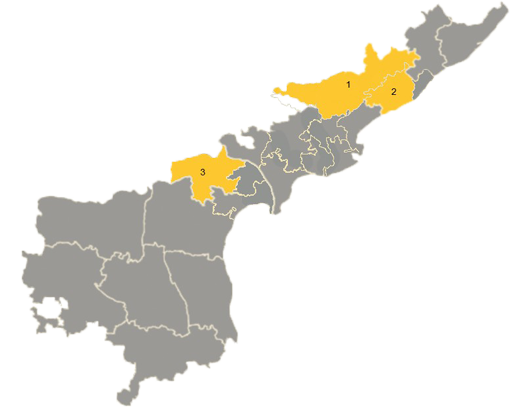
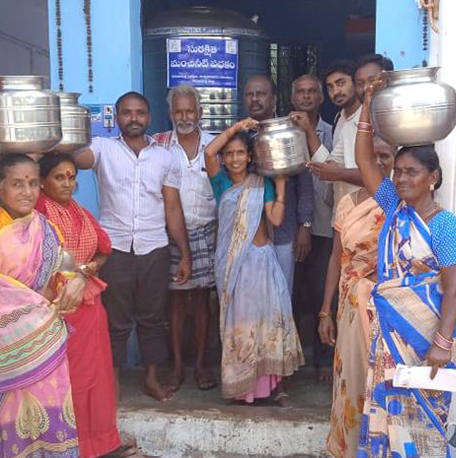
Water resource management is central to our work in the region. In response to local needs, Ambuja Foundation has revived traditional ponds, check dams, minor irrigation tanks, and canal systems—boosting water storage and recharge. We promote water-efficient farming, expand access to safe drinking water, and enable community-led governance through Water User Groups and participatory planning. Water stewards play a key role in regularly testing water quality and raising awareness. RO plants, OHSR tanks, and water literacy campaigns further strengthen long-term water security and resilience.
Additional Water Storage Created
Safe Drinking Water Facilities
People with Portable Water Availability
Surface water access improved
adopted micro-irrigation systems
minor canal systems improved
check dams constructed
minor irrigation tanks revived
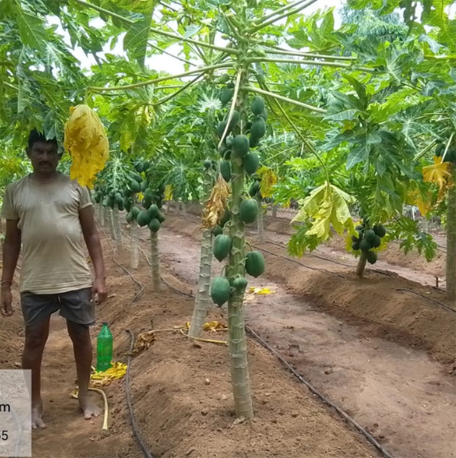
Our initiatives in Andhra Pradesh are driving a shift toward sustainable and water-efficient agriculture. Through the revival of canal systems and minor irrigation infrastructure, we have improved water access for farming communities. In the current phase, we are promoting innovative practices such as Direct Seeded Rice (DSR) and drip irrigation, which help farmers reduce input costs and conserve water. Agronomic techniques like mulching and crop diversification are being introduced to further enhance productivity and resilience. Regular capacity-building programs and Farmer Field Schools are empowering farmers with knowledge and skills to adopt these sustainable practices.
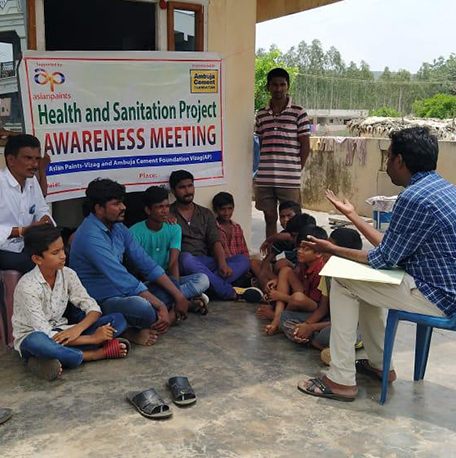
Ensuring access to safe drinking water and promoting community health have been key priorities. In high-TDS areas, we have installed RO Water ATMs, overhead storage tanks, and ensured drinking water access in schools. At the household level, the introduction of soak pits for greywater management has improved sanitation - backed by extensive ODF awareness campaigns, community toilets,training for local health stakeholders and support for Anganwadis to combat malnutrition.
Our integrated health program focused on preventive care, especially for women and children, and strengthens access to government health services at the village level through trained health workers.
community toilets constructed
with ODF awareness programs
safe drinking water facilities
supported
Soak Pits built
have access to potable water
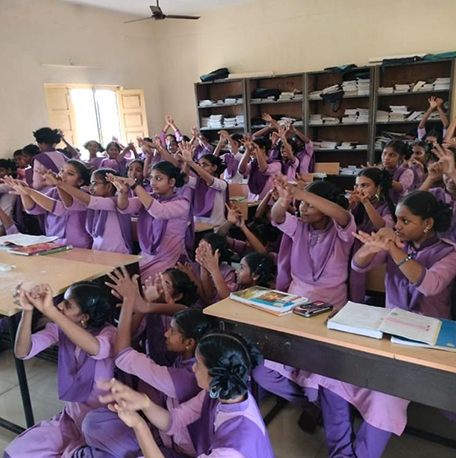
The education program in Andhra Pradesh focuses on providing infrastructure support to schools to enhance the learning atmosphere and outcomes for children. Additionally, we are improving the hygiene and sanitation conditions in schools by building toilets and handwashing stations to promote WASH and improved health and hygiene behaviour of children.
Sanitation Facilities
Received better infrastructure